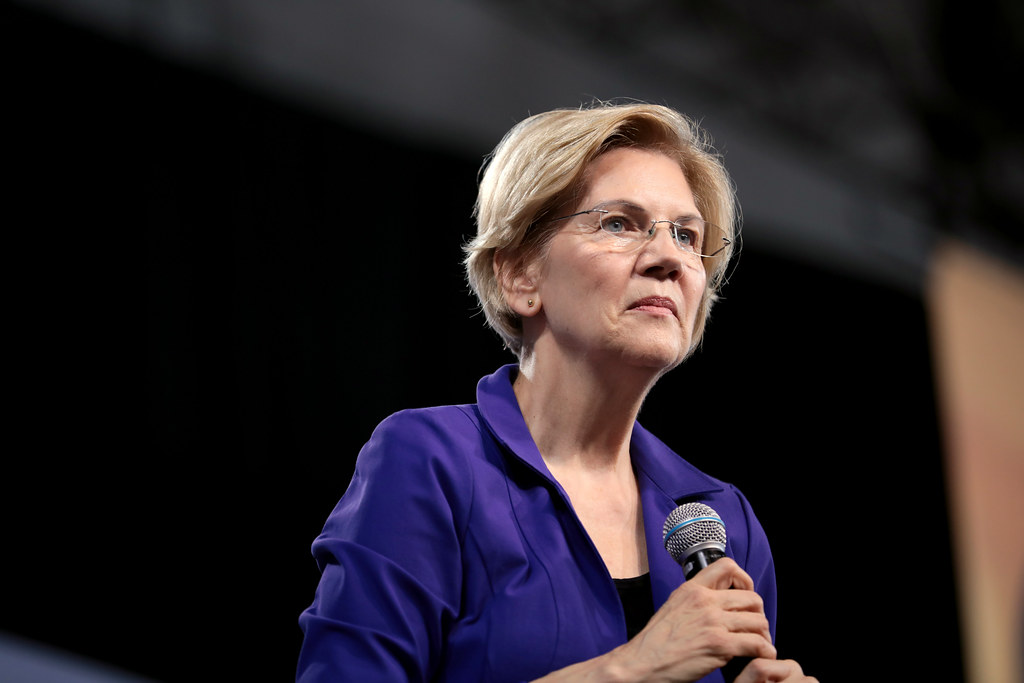
United States Senator Roger Marshall, a Republican, has officially withdrawn his support for the Digital Asset Anti-Money Laundering Act (DAAMLA), a notable anti-cryptocurrency bill he co-sponsored with Democratic Senator Elizabeth Warren in 2022. Marshall’s withdrawal, announced on July 24, reduces the number of senators backing the bill to 18, as noted in the official Congressional records.

Introduced in December 2022, the DAAMLA bill aimed to impose stringent anti-money laundering measures on the cryptocurrency industry. Senator Warren, a vocal critic of cryptocurrencies, asserted that digital assets were being exploited by “rogue nations, oligarchs, drug lords, and human traffickers […] to launder billions in stolen funds.”
The bill sought to integrate the crypto industry into existing frameworks used for combating money laundering and terrorist financing. It proposed classifying various crypto service providers, including decentralized wallet operators, validators, and miners, as financial institutions. These entities would thus be required to adhere to the Bank Secrecy Act.
In July 2023, Senator Warren reintroduced the DAAMLA bill to the Senate, continuing its focus on curbing illicit uses of cryptocurrencies. However, the legislation has faced substantial criticism from both crypto organizations and individuals. Critics argue that the bill exaggerates the extent to which cryptocurrencies are used for illegal activities and fear that it could severely impact the U.S. crypto industry.
Criticisms and Concerns
Several industry groups have voiced strong opposition to the DAAMLA bill. On February 20, the Chamber of Digital Commerce, a prominent U.S.-based crypto advocacy group, implored the Senate Banking Committee to reject the bill. The group contended that the bill would “erase hundreds of billions of dollars in value for U.S. startups and decimate the savings of countless Americans” who have invested legally in cryptocurrencies.

Additionally, on February 13, a coalition of 80 former military and national security officials expressed their concerns through an open letter. They warned that the bill could hinder law enforcement and escalate national security risks by “driving the majority of the digital asset industry overseas.”
Political Implications
Senator Elizabeth Warren, who is seeking reelection in 2024 to represent Massachusetts, continues to be a prominent advocate for stringent crypto regulations. In response to the political landscape, pro-crypto lawyer John Deaton announced his candidacy as a Republican on February 20, aiming to challenge Warren in the upcoming election.
| Aspect | Details |
|---|---|
| Bill Introduction | December 2022 by Senators Warren and Marshall. |
| Purpose | Address illicit uses of cryptocurrencies for money laundering and terrorist financing. |
| Key Provisions | Classifies various crypto service providers as financial institutions; mandates compliance with the Bank Secrecy Act. |
| Recent Action | Senator Marshall withdrew support on July 24, 2024. |
| Criticisms | Overstates crypto’s role in illegal activities; potential adverse effects on the U.S. crypto industry. |
| Industry Reactions | Chamber of Digital Commerce and former officials have voiced strong opposition. |
| Political Context | Senator Warren is running for reelection; pro-crypto lawyer John Deaton is running against her. |
Senator Roger Marshall’s withdrawal from the DAAMLA bill highlights ongoing debates and opposition surrounding crypto regulation. The bill’s proponents, including Senator Elizabeth Warren, argue it is necessary to combat illicit activities, while critics believe it overreaches and could damage the U.S. cryptocurrency sector. As political and industry responses continue to evolve, the future of cryptocurrency legislation remains uncertain.
Featured image credit: Gage Skidmore via Flickr
Follow us for more breaking news on DMR
